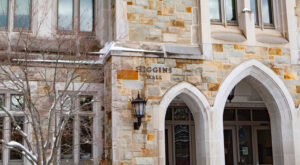U.S. Citizenship and Immigration Services (UCIS) announced this month that, as of next week, it will introduce changes to the procedure for acquiring H-1B visas. This documentation is what allows international students and faculty to study and teach at Boston College. Currently, professors from overseas are hired through the fast-track processing of H-1B visas, which UCIS said it will be discontinuing on April 3. The University plans to make 55 hires from abroad in the coming year, and eight of these hires have been affected by the changes, said Vice Provost for Faculties Billy Soo.
Another policy requiring in-person visa application interviews could impact international students coming to BC. Prospective students would have to schedule meetings at U.S. embassies and consulates overseas in order to obtain a visa. If the interview queue at these agencies becomes backlogged, then it may become difficult or even impossible for international students to make it to BC by late-August.
This new policy might pose serious roadblocks for members of the international community seeking to participate in American higher education. The action comes at a time in which immigration has been under intense scrutiny by the government, evident in the Trump administration’s initial travel ban, which specifically prohibited immigration from seven Muslim-majority countries.
BC has an academic culture that is enriched by its diverse faculty and students. This year, the University had 62 international faculty and research scholars on H-1B visas. Around 700 new international students come to BC each year. These members of the University are an integral part of what makes this school a great institution. Any legal action that makes it harder for these valuable contributors to our country to live, study, and teach in America would harm the BC community as a whole.
This is not to mention the larger effect of the policy on higher education in general. The U.S. is an essential participant in global affairs, and programs in international issues, policy, and relations are found in many academic curriculums at colleges and universities across the country. BC has an International Studies Program that is growing in stature, as well as other interdisciplinary programs such as Islamic Civilization and Societies and Latin American Studies. In recent years, BC has made an effort to diversify its faculty to better reflect the changing country and world. The advancement of these important areas of study will be inhibited if diverse faculty and students are unable to come to BC and other colleges in the U.S. in the future.
Study abroad is a part of the college experience of many American students. About 50 percent of undergraduates at BC will spend time studying overseas during their education, according to the Office of International Programs. If the U.S. government continues to take a hardline stance on immigration, this might have adverse effects on the perception of students that choose to study abroad. If those in foreign countries see that America does not value their culture, why would they be inclined to accept American students into their homelands?
The Ignatian message of “setting the world aflame” is a central component of a BC education. Students are encouraged to take what they learn in the classroom and apply it in the real world in order to make a difference. Many graduates go on to join organizations such as the Peace Corps or to work for international nonprofits. The University’s indispensable global perspective and mission is under threat with changing approaches to immigration and diplomacy within the current U.S. government.
During this testing time, it is imperative that BC remain committed to addressing the world’s most pressing issues and continue to further develop institutional diversity. If new policies impede the traditional methods of hiring and admitting international faculty and students, then the University must do all that it can to find new ways in which to make these practices possible.
Trump has stated that he wants to “Make America great again.” Regardless of what this administration believes, diversity is what already does, and always will, make this country great.
Featured Image by Andrew Harnik/AP Photo




